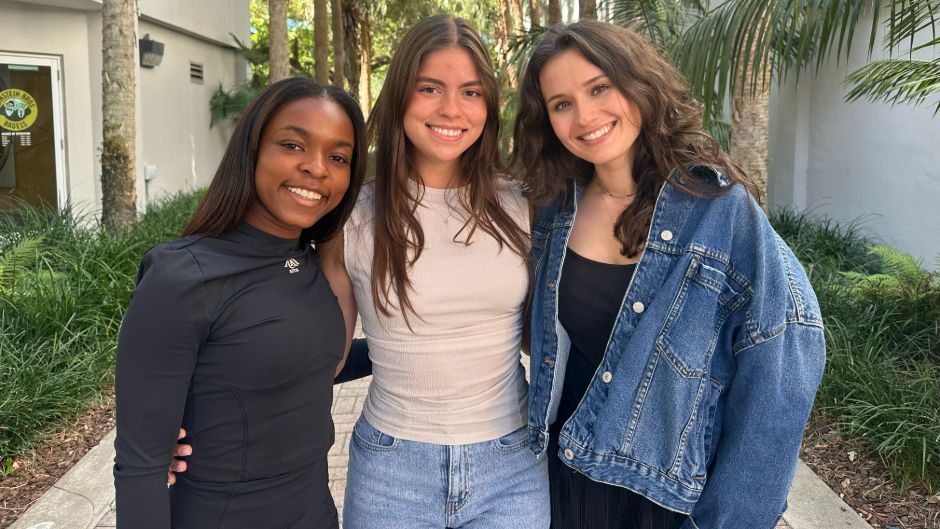The University of Miami School of Law Innocence Clinic recently won a significant victory in its nearly decadelong battle to overturn the wrongful conviction of Lawrence Johnson, serving a life sentence for murder. On February 26, 2025, the 4th District Court of Appeal unanimously ruled in favor of Johnson, remanding the case back to the Circuit Court for an evidentiary hearing. The decision is not only a legal milestone—it's a powerful affirmation of the clinic's relentless pursuit of justice on behalf of a man who has maintained his innocence for over 15 years.
Since 2015, 18 law students, under the direction of the clinic's director, Craig Trocino, have dedicated hundreds of hours to Johnson's case, united by a shared commitment to uncovering the truth. Over the years, they have reviewed trial transcripts, analyzed forensic evidence, drafted legal pleadings, and refined arguments at every stage of litigation. This year's team—Stephanie Alvarez, Julia Zayas, and Kennedy Byrd—played a particularly critical role in preparing the reply brief. Their work demanded meticulous research, strategic thinking, and precise drafting. The recent appellate victory was due in significant part to these efforts.
The students tackled the case with precision and innovative legal strategy, blending meticulous attention to detail with creative advocacy. Their efforts went far beyond simply refuting the state's arguments—they worked to craft a powerful, evidence-based case that demonstrated why justice demanded a fresh examination.
Preparing the reply brief demanded a complete review of the trial record, earlier 3.850 motions, and the forensic science behind Y-STR DNA testing. "We identified logical flaws and legal misstatements in the state's argument," said Alvarez, a second-year law student. "When we dug into the case law they cited, we discovered that their strongest authorities were either misrepresented or plainly inapplicable." The process involved multiple rounds of drafting, editing, and reworking, with some students logging over 50 hours on the brief alone.
"This case has been a true team effort," said Zayas, a third-year student. "Each generation of students built on the work of those who came before. Every person involved sharpened the legal strategy and helped push the case forward."
The clinic's success reflects technical legal skills and a deep and personal investment in the outcome. "This isn't just an academic exercise," said Byrd, a third-year student and fellow. "It's a real fight for someone's future, and we won't stop advocating until justice is served."
As the evidentiary hearing approaches, the clinic is doubling down on preparation. The hearing presents the first opportunity to introduce new evidence that could lead to Johnson's exoneration. The team is currently focused on challenging the admissibility and reliability of the DNA evidence used at trial. That means reanalyzing the scientific foundation for the Y-STR testing key to the original conviction—testing that experts now widely question.
Students have been hard at work reviewing the entire case file, prior pleadings, discovery responses, and court rulings. Their preparation includes legal strategy and engagement with the scientific literature to challenge the forensic methods that contributed to Johnson's conviction.
"The clinic's work on this case reflects the best of what clinical legal education can offer: hands-on learning, rigorous legal analysis, and a tangible impact on people's lives," said Trocino. "As they move forward, the students and faculty remain united in their commitment to exonerating Johnson and correcting this miscarriage of justice."
After nearly 10 years of work, the Innocence Clinic has brought Johnson one step closer to freedom—and they are not done yet.
Read more about Miami Law's clinics.

